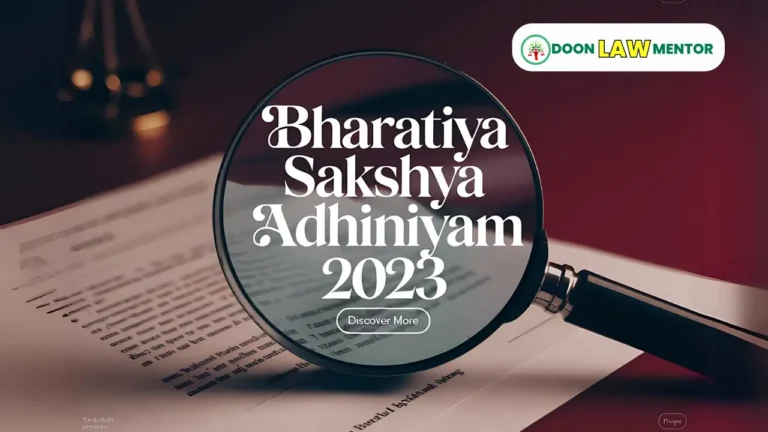Preparing for the Judiciary Interview for First-Time Aspirants 2025 requires a blend of knowledge, confidence, and smart strategy. In this guide, discover 10 essential tips for judiciary interview for first-time aspirants 2025, practical examples, expert techniques, and success-driven approaches to crack this prestigious phase. Your journey towards becoming a judge starts with mastering these insights!
Introduction
The Judiciary Interview for First-Time Aspirants 2025 is more than just a conversation; it’s the gateway between years of hard work and a lifetime of judicial service. For most candidates, it is an unfamiliar territory filled with nervous anticipation, myths, and high stakes. Unlike written exams where answers can be revised, here every word, gesture, and pause matters.
This stage not only tests your knowledge but also your personality, clarity of thought, analytical abilities, judgment sense, and above all, temperament—critical for a judicial officer. Success requires conscious preparation, awareness, and a strategic mindset. Whether you are a fresh law graduate or a seasoned aspirant, this guide will decode the essential strategies to help you ace the judiciary interview confidently.
Let’s dive deep into the 10 Essential Tips for Judiciary Interview for First-Time Aspirants 2025 and craft a roadmap to success.
Read More: MC Mehta Case: Supreme Court Orders 100% Waste Management in Delhi NCR 2025
1. Understand the Objective of the Judiciary Interview
The primary goal of the Judiciary Interview for First-Time Aspirants 2025 is not to grill you academically like the mains examination. Instead, it aims to assess:
- Your personality traits
- Your presence of mind
- Your communication skills
- Your judgment and impartiality
- Your general awareness and legal knowledge
The interview panel, often comprising High Court judges, senior bureaucrats, and academicians, wants to ensure that you have the temperament and intellectual maturity required to serve the public trust.
Key Tip: Focus equally on how you answer and what you answer. Calmness under pressure is often rated higher than a correct but nervous response.
Case Study Example:
In the UPPCS (J) 2018 Interview, a candidate was praised for admitting politely that he was unaware of a particular Latin maxim rather than fumbling with an incorrect guess. Honesty, coupled with composure, often impresses the panel.
2. Master Your DAF (Detailed Application Form)
Your Detailed Application Form (DAF) is your mirror during the interview. Every word you mention there — academic records, hobbies, internships, or publications — is a potential question.
Common Mistakes to Avoid:
- Mentioning hobbies like “reading” or “traveling” without being able to discuss a book or a journey meaningfully.
- Including law internships but being clueless about your actual work there.
Best Practices:
- Revise everything you mention.
- Be ready for questions like:
- “What did you learn from your internship at XYZ Law Firm?”
- “Which book did you recently read and what were your takeaways?”
Important Note:
In a 2022 Rajasthan Judicial Services Interview, a candidate was asked detailed questions about a moot court event he participated in during law school.
3. Stay Updated With Current Legal Developments
Panel members expect a budding judge to be aware of major legal developments, landmark judgments, and important legislative amendments. Especially focus on:
- New laws like Bharatiya Nyaya Sanhita, 2023, Bharatiya Nagarik Suraksha Sanhita, 2023, etc.
- Landmark Supreme Court judgments such as
Suresh Kumar v. State of Haryana (2025 SC) regarding land acquisition compensation delays.
Pro Tip: Create a journal summarizing 15–20 latest legal news items with a one-line judgment note.
You can stay updated via reliable portals like LiveLaw or SCC Online.
Read More: Delhi High Court Slams Baba Ramdev’s Sharbat-Jihad Remarks
4. Prepare Smart Answers for Common Questions
Certain questions are evergreen in judiciary interviews:
| Common Judiciary Interview Questions | Key Tip for Answering |
|---|---|
| Why do you want to become a judge? | Show a sense of duty, service, and justice, not just personal ambition. |
| Strengths and Weaknesses? | Mention qualities like patience, empathy; weaknesses that you are improving. |
| Favorite Subject in Law? | Be prepared with deep knowledge and recent updates. |
| Role Model in Judiciary? | Name a reputed judge and explain why. |
5. Refine Your Communication Skills
Communication is not about using bombastic words but expressing complex ideas simply and precisely. Practice:
- Speaking clearly, without fillers like “umm”, “like”, “you know”.
- Avoid speaking too fast or too slow.
- Structuring your answers logically: Introduction–Analysis–Conclusion.
Example:
If asked about Right to Privacy, a structured answer would mention
Justice K.S. Puttaswamy v. Union of India (2017), its evolution, and significance briefly.
Diagram: Effective Answer Structure
[Start] -> [Identify Keywords] -> [Link to Principle/Case] -> [Conclude Briefly]6. Groom Your Personality and Body Language
The moment you enter the interview room, your assessment begins. Your posture, walk, eye contact, hand movements, and attire matter.
Body Language Dos:
- Handshake (if offered): Firm but gentle.
- Sitting posture: Straight back, relaxed shoulders.
- Eye contact: Maintain it with the panel but don’t stare.
- Smile: Subtle, professional—not grinning.
Dress Code:
- For men: Formal light shirt, dark trousers, neat shoes.
- For women: Formal Indian wear or a simple western suit.
Tip:
Judiciary panels expect candidates to appear as future judges, exuding dignity, seriousness, and humility.
7. Practice Mock Interviews
Mock interviews simulate the pressure of the real interview and help identify your blind spots. Many coaching platforms and academies offer quality mocks tailored for judiciary interviews.
Checklist for Good Mocks:
- Choose serious platforms like Doon Law Mentor.
- Get detailed feedback on content, voice modulation, and body language.
- Record and review your own performance.
Aspirants who did 5–7 good mocks before their actual interview saw a visible improvement in confidence and articulation.
8. Brush Up Important Constitutional and Procedural Laws
While the interview is personality-based, it is also grounded in fundamental legal knowledge.
Must Revise Topics:
- Preamble, Fundamental Rights, DPSPs (from Constitution)
- Basic principles of IPC, CrPC, Evidence Act
- Recent Amendments: Such as provisions from Bharatiya Nyaya Sanhita, 2023.
External Resources:
For a crisp summary, refer to PRS Legislative Research.
Example Interview Question:
“What is the difference between ‘Res Judicata’ and ‘Issue Estoppel’?”
(Revise key differences beforehand.)
9. Develop Judicial Temperament
You are not being tested to be a lawyer; you are being assessed as a potential judicial officer. Judicial temperament includes:
- Patience and Listening Skills: Don’t interrupt.
- Neutral Demeanor: Avoid showing strong personal opinions.
- Ethical Mindset: Demonstrate integrity, fairness, and respect for all.
Illustration:
In a mock conducted by DLM, a panelist aggressively disagreed with a candidate’s view on reservation policies. The aspirant maintained composure, acknowledged diversity of views, and respectfully stated her point — which impressed the panel.
10. Remain Calm and Positive
Remember, the panel is not your enemy. They want to select you, not reject you.
Even if you fumble in a question, recover gracefully and continue with confidence. Never allow one bad moment to cloud your whole interview.
Mindset Mantra:
“Every answer is an opportunity to display calmness, clarity, and character.”
Visualization Technique:
Before entering the room, close your eyes for 60 seconds, take deep breaths, and visualize yourself answering confidently.
Conclusion: Key Takeaways
Cracking the Judiciary Interview for First-Time Aspirants 2025 is a culmination of knowledge, personality, and emotional maturity. It’s not about knowing everything but about handling the unknown gracefully.
By following these 10 essential tips — from mastering your DAF to developing judicial temperament — you are setting yourself up for success. With focused preparation, smart strategy, and an unshakable belief in yourself, you can turn this final frontier into your stepping stone toward a glorious judicial career.
✅ Stay calm,
✅ Stay authentic,
✅ Stay judicial.
Your black robe is waiting!
FAQs
1. How much time is ideal for judiciary interview preparation?
Ideally, start dedicated preparation 30–45 days before the interview date, focusing on mocks, current affairs, and DAF revision.
2. Can panelists ask technical law questions?
Yes, basic legal questions from Constitution, CrPC, IPC, CPC, and Evidence Act are commonly asked, but heavy technical grilling is rare.
3. What happens if I don’t know an answer?
Admit it honestly and politely. Never bluff or mislead the panel. Honesty is highly respected.
4. How do I improve my speaking skills for the interview?
Regular mock interviews, recording your answers, reading aloud legal topics, and practicing structured speaking will help improve articulation.
5. Are hobbies and extracurriculars really important in judiciary interviews?
Yes, they reflect your personality, interests, and life outside academics. Be prepared to discuss them confidently.
6. Is it necessary to know about latest landmark judgments?
Absolutely! Knowing recent important judgments displays your general awareness and keeps you aligned with current legal developments.
#JudiciaryInterview #JudiciaryExamPreparation #LawStudents #JudiciaryCoaching #JudiciaryInterviewTips #JudiciaryInterview2025 #LawCareer #JudicialServicesExam #LegalEducation #DoonLawMentor










